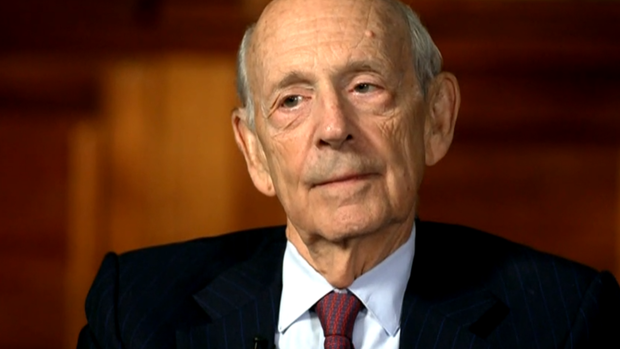Retired Supreme Court Justice Stephen Breyer is speaking out about the court’s direction ahead of upcoming cases with major implications, including its biggest case on access to abortion since it overturned Roe v. Wade in 2022, and a decision on whether former President Donald Trump should have immunity from criminal prosecution.
In his new book, “Reading the Constitution,” Breyer, who stepped down from the Supreme Court two years ago, makes the case for his judicial philosophy. Breyer spent his career arguing for a more liberal — he calls it “traditional” — interpretation of the Constitution.
In his book, he also delivers a warning about the approach favored by the court’s conservatives, saying it has harmful effects when the court overturns longstanding precedents like it did with Roe v. Wade, sending the issue of abortion back to the states.
“You overrule too many cases, and law will turn into chaos. And before you know it, you won’t know what the law is,” Breyer said. “What is the principle? Is the principle that you think those cases decided then were really wrong, egregiously wrong, totally wrong? And how are you going to decide that?”
Because of the newly strengthened conservative majority, Breyer says he was unable to seek a compromise with Chief Justice John Roberts, who wanted a middle path to try to save Roe by saying states could not ban abortion before 15 weeks. Breyer says he would have considered joining Roberts.
Breyer argues the case shows the problems with the conservative approach, where judges look at the words of the law or how the Constitution was originally understood when it was written. Instead, Breyer advocates considering the “purposes, consequences and values” of the law.
It’s a war of ideas, but Breyer rejects accusations that the court is political.
“The political people desperately want to say that the judges are deciding on political bases. I don’t think that’s true,” he said.
Breyer says disagreements among the Supreme Court justices remain civil, especially in private when the nine justices meet to discuss the cases. In those meetings, he says, nobody speaks twice until everyone has spoken once.
“It’s important because then everyone feels they’ve participated. Everyone feels that the others have a chance to listen to them.”
Though he’s no longer on the Supreme Court, he maintains an office there and is still arguing for his ideals. And he’s hoping to encourage young people about the future.
“They say, ‘Well, what should we do?’ I say, ‘What should we do? Get out and participate.’ But you want me to be detailed? I’ll tell you something. I’ll tell you a secret. It’s not my world anymore. It’s yours and you are the ones who will decide how to keep it together. So, go out there and do it.'”


